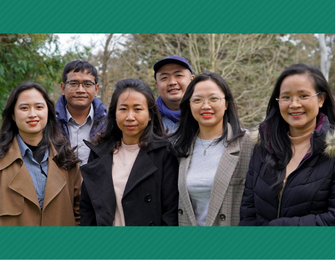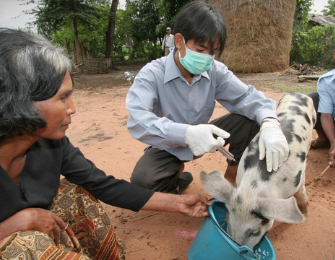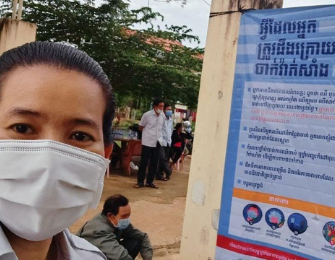At the end of the project, there will be cohort of veterinarians and para-veterinarians across the Indo-Pacific region who are able to work at the animal-human interface to detect, respond, control and prevent animal disease outbreaks and who can collaborate with the human health workforce on disease issues.
To strengthen the animal health workforce in the target countries the project will be delivered through two pathways: APCOVE targeting veterinarians and the Pacific Paravet Training Project targeting para-veterinarians.
APCOVE will bring together 40 experts from veterinary schools across Australia, New Zealand, the United States and the Asia-Pacific to design open source, online training modules and case studies, that will be used to train veterinarians in core epidemiological skills. The modules and case studies will teach several of the World Organisation for Animal Health’s Critical Competencies of the Performance of Veterinary Services, building skills in outbreak investigation and response; surveillance and data analysis; risk assessment and disease control; one health and biosecurity and leadership and communication.
Animal health agencies in the target countries will select veterinarians to complete the training and, as part of the training, develop projects to investigate current local animal health issues. Linkages will be established between training programs across countries and to the equivalent programs in human public health to strengthen collaboration at the animal-human health interface.
In response to COVID-19, the APCOVE project has adjusted some of the content of the training modules to include COVID-19 examples and case studies, where relevant. Some of the APCOVE courses have also shifted from an animal health approach to more emphasis on One Health and are available to both animal and human health professionals.
- Read about project adviser Dr Imas Yuyun from Indonesia
- Read about project adviser Dr Abrao Pereira from Timor-Leste
Australia’s COVID-19 Response
The Australian Government is deeply concerned about the impact of COVID-19 in Myanmar. Australia's existing humanitarian and development programs continue to focus on COVID-19 prevention and mitigation including:
- providing oxygen related equipment;
- building sanitation infrastructure and isolation wards in internally displaced persons camps;
- distributing personal protective equipment (PPE) to affected communities;
- training and community engagement in disease outbreak surveillance and response;
- capacity building in field epidemiology; and
- strengthening laboratory and emergency health operations.
For more information visit Australia’s development assistance to Myanmar.




